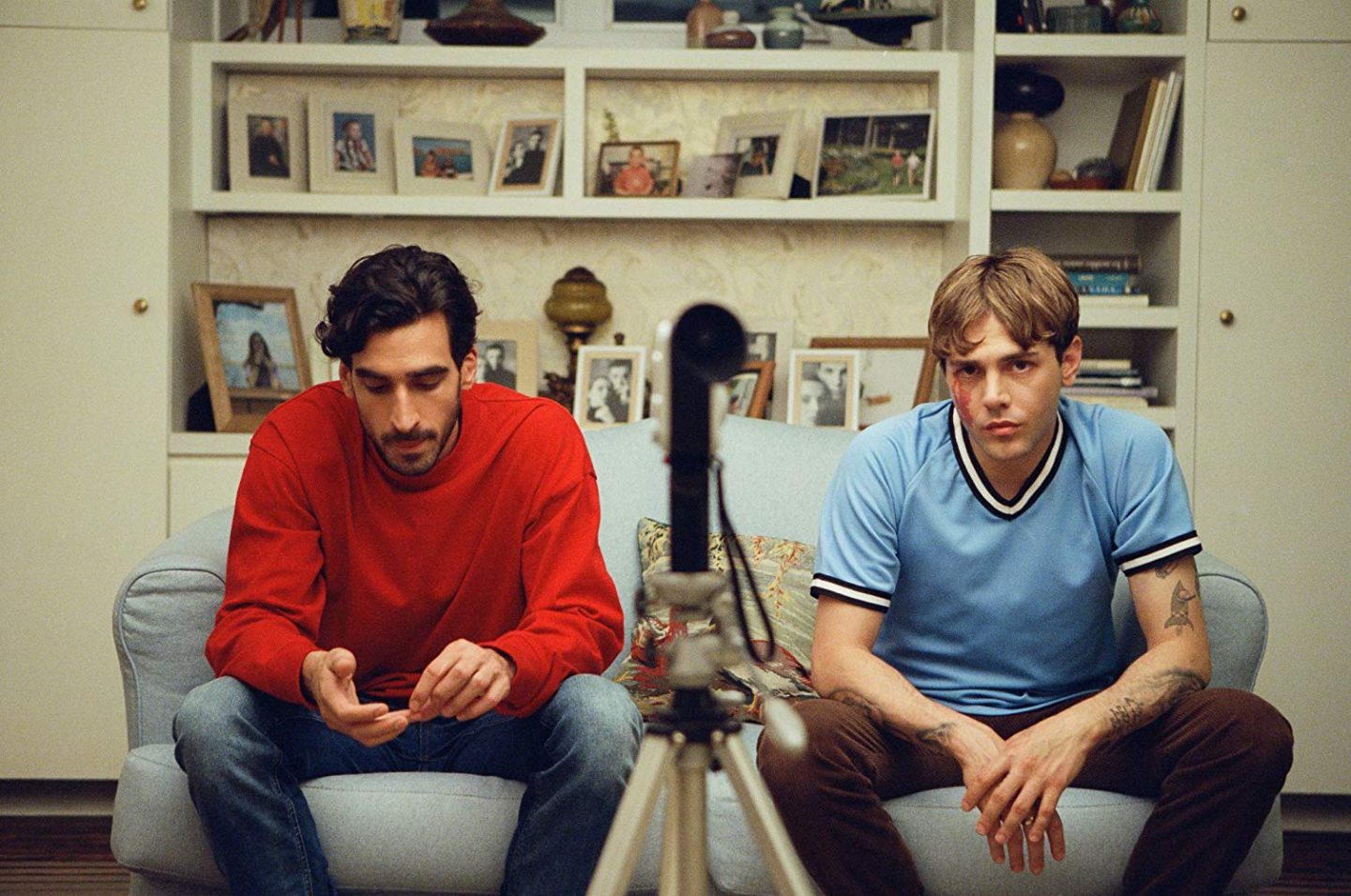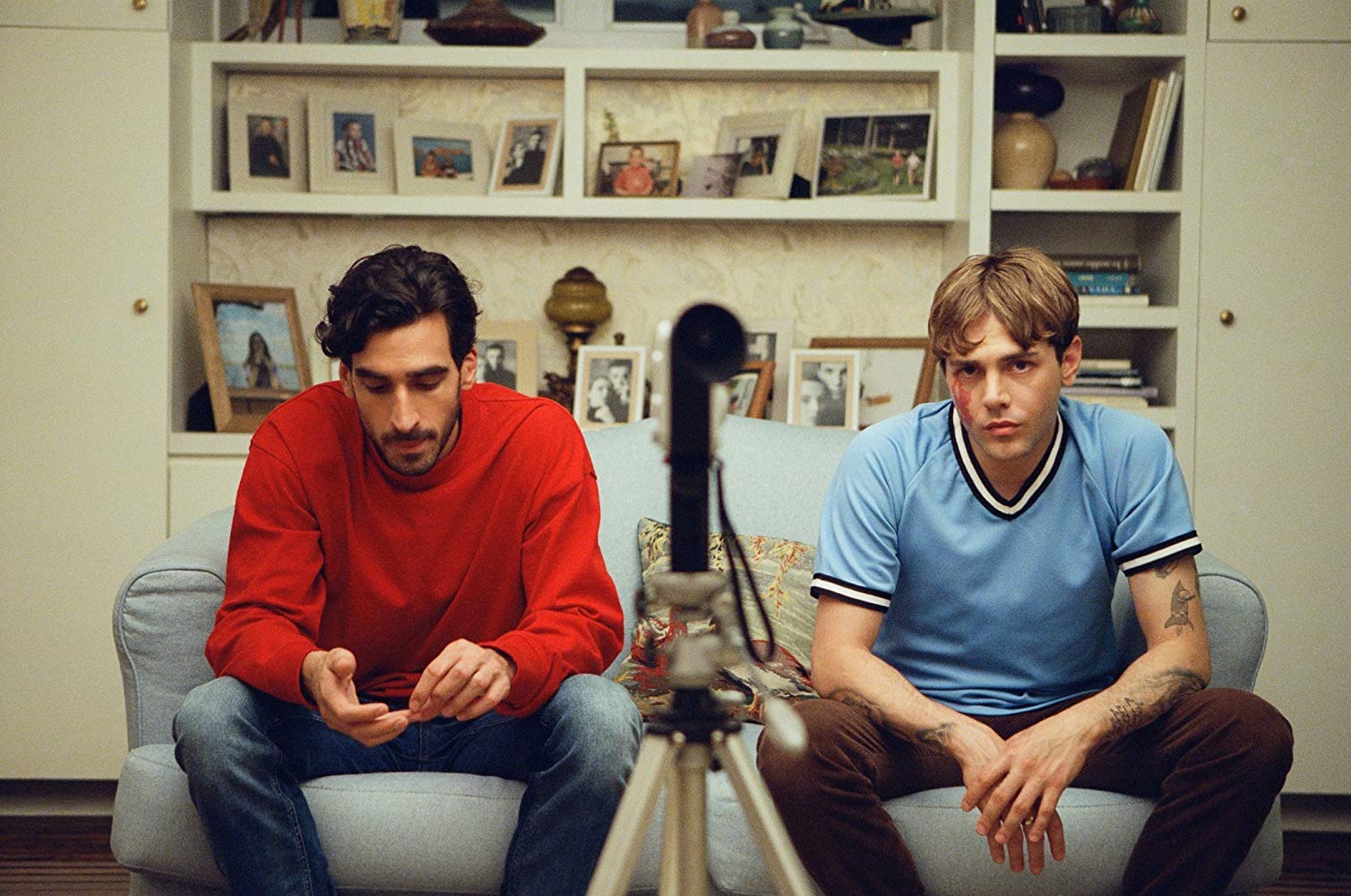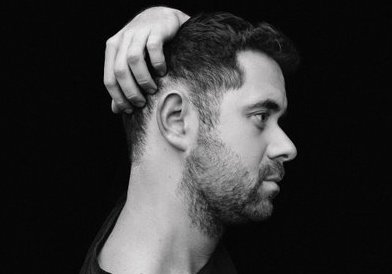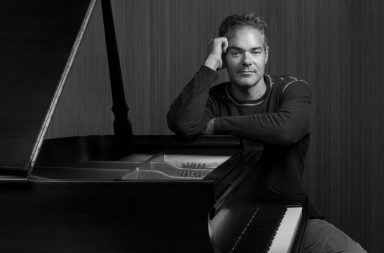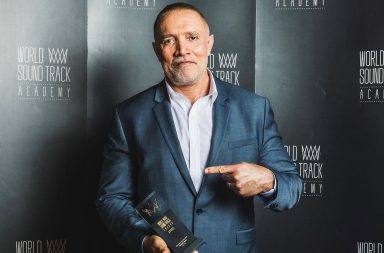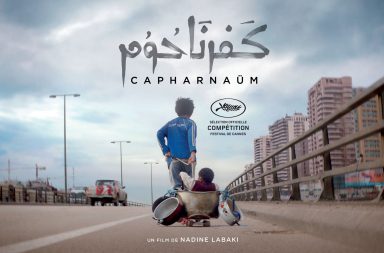The day we met him, composer Jean-Michel Blais was red from the Cannes sun and still dumbfounded to be there. “I can’t believe I am here with the whole gang!” he says, smiling. The pianist is your pure Canadian man: kind, humble, and he has this charming Québec accent that the French love so much. The “gang” he talks about is Xavier Dolan‘s film crew that is here for the director’s latest effort Matthias et Maxime, selected in the Official Competition.
For the musician, his presence at the world’s largest cinema event goes far beyond his being here as an individual: for him, Dolan acknowledges and celebrates film music as a major actor in the film creative process. The 30-year-old director, who celebrates a decade of sélection cannoise, has worked 3 times with world-acclaimed composer Gabriel Yared (Tom at the Farm, It’s Only the End of the World and The Death & Life of John F. Donovan), and Matthias et Maxime marks his first collaboration with first-time film composer Jean-Michel Blais.
New to the film world, the pianist improvised around one of Schubert’s sonatas while Dolan read him the script. They established a work-in-progress process, where they would create the soundtrack as they went, Dolan playing the takes on-set and Blais improvising while watching the rushes. The composer wrote an incredibly immersing piano soundtrack that takes the viewer right at the center of the characters’ seething uncertainty and doubts.
The jury of the Cannes Soundtrack Awards was deeply touched by the raw emotion of Jean-Michel Blais’s score and gave him a Special Prize at the 2019 edition of the manifestation.
Score It Magazine: You signed a record deal with Mercury, the UK Universal subdivision, do you have a date for the release of the Matthias et Maxime soundtrack ?
Jean-Michel Blais: Soon I guess, even if we don’t have a date yet. We’re waiting for the film’s theatrical release and then there’ll be the release of the soundtrack and sheet music. I don’t want to spoil the film by releasing the music top early, we need to keep some mystery.
How much music did you write?
The final mix is 20 minutes long, and it’s more or less the same amount in the film. It’s little but a lot at the same time. The piano helps you dive into the characters’ mind.
If I’m not mistaken, the first time we hear your music is the scene where Matt goes for a swim in the lake, right?
Exactly.
When did Xavier call you to offer you to score his film?
I’d say it was last summer. The shooting hadn’t begun yet. The music was actually composed during the shooting. It was my first soundtrack so I had no idea what the process was.
Did he guide you?
He did indeed. So, he called me, we met, he played some music for me: all the tracks you hear in the film, and so many more. He also played instrumentals for me, corresponding to what he had in mind for the film. Among the pieces that inspired me, there is the Mozart piece that is heard in the film, and Schubert. His Piano Sonata in A minor D.845 (Second Movement) was sort of our invisible underlying cornerstone to build the musical environment. It’s a major movement. All the pieces I composed are, in a certain way, declinations of the energy that arises from this sonata. We wanted something very romantic, and Schubert was one of the leaders of Romanticism. We have something very rigorous, precise, structured, and at the same time, Romanticism allows nuances and variations. This sonata is the only one Schubert wrote which includes themes and variations. And that’s my definition of film music. Oftentimes in films, the soundtrack is divided into recurring themes that may vary. I find it incredible that Xavier chose this sonata precisely, as if he had had a hunch. We improvised with bits of the scenario, and the lake scene is a good example: he would read the scenario and mime it for me with grand gestures.
A bit like a conductor?
Yes. But I also felt like one of his actors, with a part to play. Xavier would give me the stage instructions. I had a lot of freedom even if he knew exactly what he needed.
So the shooting and writing of the score were quite concomitant?
Yes, most of what you hear on-screen are improvisations and live music. Xavier would leave with some takes that he would play on-set the following day, and he would leave the set with rushes to show me, so I would play, we would come back to first takes… It really was a fascinating work-in-progress process. I’m not sure if this is common in the scoring world?
Well, most of the time, the score and its composer intervene in post-production.
Yes, and I guess it costs a lot of money. Xavier lives 5 minutes away from my place; it was really easy to agree to meet on a Friday night to have a studio session. He would leave with the music, go on set and play it to the actors while they played. He would record the dialogues, do his editing including the music. At the end, I told him that, in my opinion, if we were to re-record the music to give it a polished finish, it would denature the whole thing. We had to keep the nuances and imperfections. The ‘Solitude’ track is in 4/4 time, and all of a sudden you have a 4/5 time because I didn’t know which chord to play, so it sounds like a hesitation. And Xavier fitted his images on it. I couldn’t have anticipated all this, but it works well with the character in the end. I love improv, and so does Xavier. When he directs his actors, he has his scenario but the dialogues are not written in stone, it is the emotion which must transcend it all.
Was the film shot in chronological order then, to closely match the characters’ emotional developments?
I don’t think so. But Xavier wanted to follow the seasons and we went till the first snowfalls. Xavier knows what he wants so he would tell me: “It’s too early to be that nostalgic, we’re not far enough into the film”.
Were you Xavier’s translator?
Well, Xavier tells you: “I don’t know anything about music, don’t you have something lighter, more crystalline?” He doesn’t talk about keys but he is very sensitive and he hears everything. If I do variations, he hears it at once, and says that it’s not the exact same melody as before. But because I am improvising, I can’t play the exact same thing. What a delight to work with him!
You had a great first time in scoring then?
I couldn’t have asked for a better experience! I had the comfort to be at home in Quebec, we had mutual friends. I have been with the gang ever since I arrived in Cannes, I was welcomed with open arms. With Xavier, I had the comfort of being at home and to have this international aura that he has. Oftentimes, I wondered if all this was going to work out. Not that I don’t trust Xavier’s talent, but I was scared that he might change his mind or that he might think I wasn’t good enough. I was full of doubts too, just like the characters, Maxime and Matthias. But then, I saw the final version of the film, then it was selected to compete at the Festival, and then I’m asked to come along! This goes far beyond anything I had hoped for.

The gang, in Cannes (from Jean-Michel’s Instagram page).
Music is always very important in Xavier Dolan’s filmography, whether it be licensed music or original score. Music is cathartic and liberating. Your music here is the sound of uncertainty.
Yes, that is why this underlying theme of constant hesitation that runs throughout the entire film worked perfectly with the notion of improvisation. Nothing is mechanical, nothing is fixed. For the lake scene, it’s the moment when we dive. I was inspired by Chopin, Liszt et all the impressionists. I’m thinking about Debussy’s La mer: this piece sways from a major chord to a minor chord, and this is what creates the notion of doubt. You have no point of reference and it creates a backwash.
Regarding the studio sessions and recording, how did you work to have such an enveloping texture?
It’s all thanks to the piano. We used a Fazioli, an Italian piano. Very explosive and subtle at the same time. We thought about playing on a Steinway but it was too dark, it didn’t work. The room which we recorded in was a medium-sized studio. It didn’t have the reverberation of a cathedral but we didn’t have the impression of being in a tiny box. If you listen carefully, you’ll hear some mistakes in the sound recording. Some mics weren’t where they should have been… But still, it worked! Serendipity, I guess! That’s how Xavier works. Not that he cultivates an art of mistakes, this is absolutely not what I mean. I mean that chance and improv have a right to sit at the table.
In the scene where Rivette plays Schubert, were you a consultant?
No, Pier-Luc [Funk, who plays Rivette] can play the piano. He didn’t learn this Schubert piece, but just enough to pretend that he knows how to. They shot the scene using Alfred Brendel’s interpretation of this piece which has an incredible reverberation but it was a bit too fast. When I saw the editing of the scene, I played again the piece to fit the images. But when I did so, Xavier was there and he told me he was going to shove me a bit while I was playing… for me to make mistakes! He knew I am very rigid when it comes to classical music… Thus we have a version that fits the images.
What are your upcoming projects?
l’m releasing an electro remix of my latest album. Score-wise, we had some things, but nothing that clicked, really. My manager is dealing with all this. At the moment, I’m working on a new album, and maybe I’ll score a film again in the upcoming years. You have to find the right timing and the right film. I’ve always been a big fan of Xavier’s, and to be part of his film… He could have asked me to be the body double for the shot of the hands in the piano scene, I would have said yes! I’m waiting for the script that’ll take my breath away. I loved the work-in-progress process, it was so inspiring and it gives value to the composer who is invisible, most of the time. I’m even more than happy that Xavier asked me to be here, and at the end of the screening, he hugged me. It was very symbolic, he was not hugging me like an individual, but embracing film music and putting it forward, at the same level as the cast.
Interview prepared and conducted by Samuel François-Steininger & Marine Wong Kwok Chuen, translated by Marine Wong Kwok Chuen, and edited by Valentin Maniglia. Score It Magazine would like to thank Ophélie Surelle and Vincent Doerr who helped us organising the interview.
